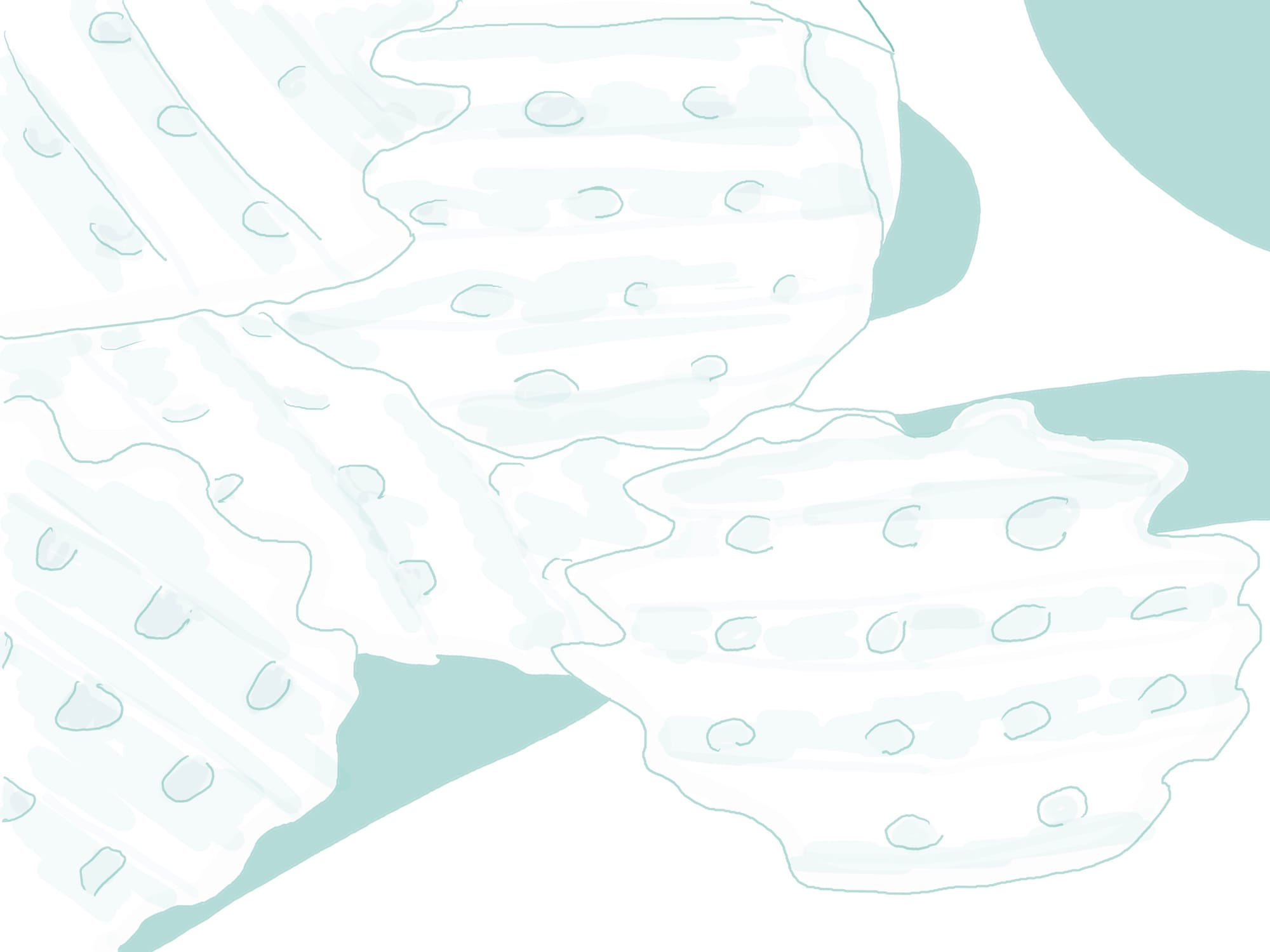Boycotting Bad Sandwiches
Boycotting bad ideas from free spaces may end up building a platform for them instead.

Some of the most famous people in government these days are named Mike Johnson. It's a name that used to be the de facto eponym of a failed employee on the other end of the phone in a sketch comedy bit. Now, it's the name of the Speaker of the House and probably 12 other people in the halls of Congress you've never heard of until recently.
In a climate where people are this generic, the best way to stand out is by making the most annoying noises possible. It's always an option to screech at the top of your lungs if it wins notoriety, but if you ask Howard Dean, that's a tough thing to be remembered for, so most would recommend other antics.
The more bland you are, the harder it is to find your big break. That's why the most decent among us work in cubicles or the unseen corners of zoom screens. Because if you don't destroy someone's life, no one will ever remember yours when it's gone. That's why some have taken a kill-or-be-killed approach. When the earth sucks your blood, the only reasonable thing to do is suck back, and step one is to suck by boycotting something.
It's simple. You do your best to ruin somebody's ability to make a living based on the thinnest shred of evidence and lodge preferably false or exaggerated claims against them. Extra points if their father is the President.
Regardless of who your enemy is, it's crucial that your boycott doesn't solve the problems you are critical of but simply gives you a place on the top of the pile above them. Because otherwise, your name is entirely generic, and no one will ever remember you.
Take the story of Substackers Against Nazis, for example.
Most of you will find this story unfamiliar, so let me bring you up to speed. Here's a primer on the characters.
- Substack is a free, self-service platform where independent writers can start newsletters. In 2010, it would have been called a blogging service; in the 1980s, it would have been called a copy machine; and in the 1950s, it would have been called a stack of paper sitting near some postage stamps.
- Nazis are members of a political party in Germany from 1920 to 1945 and also anyone who appears to even marginally share one or all of the party's views.
- Substackers Against Nazis is a collection of mad people with a generic name.
Substackers Against Nazis is a protest organized by a group of such writers who have chosen to boycott Substack, the platform they publish on, for not properly boycotting obscure writers. The group is standing up to the evils of free self-service software because some people have indeed served themselves by using this very software. Notably, some of the people to use the self-serve software have bad ideas, even some going as far as being Nazis, which, while poorly defined, is one of the worst things you can be.
Substack was launched with an anti-social-media style vision of letting writers build their own audiences, own those audiences, and, if they are able, make money from those audiences. Substack only earns revenue by taking a 10% cut through credit card fees, and it remains hands-off in content moderation. Its content moderation practice works because you only see content that you follow and don't see content that you don't follow.
Many writers have chosen Substack for this very reason. They're journalists who worked for papers that limited their earning potential or prevented their ability to publish certain stories, so they went to a place where they could publish freely. At Substack, they can publish their ideas and build an audience that supports them by subscribing to their newsletter without the upfront costs of building their own software platform. They gain freedom and control over their own content publishing and the opportunity to be indifferent to other people's content.
I realize it seems shocking, but even objectionable people use this kind of software. Presumably, because it is free, and moderation is up to each publisher, given they only publish to their own audience and have their own comments section.
A few writers no longer like the idea of free software. They believe that the internet and a platform like Substack are responsible for squashing every bad idea, even in the absence of fees high enough to pay for a staff sufficient to fulfill the massive amount of squashing on self-serve software.
In an effort to bully Substack into washing itself of bad ideas, Substackers Against Nazis are turning Substack into the spicy chicken sandwich of the internet. A sandwich which shall be boycotted because a major shareholder of its producer may have an objectionable opinion. The chicken sandwich itself is now the predator.
No longer are waffle fries a platform for your choice of salt or Polynesian sauce based on your own private preference, but rather Salt and Polynesian Sauce incarnate, here to inflict on you only the good flavors and ban all the bad flavors, first by entering each car within its drive-thru to inspect the choice of sauce and ensure only straight white cis-gender male sauces are accepted, and all others are forbidden.
To be sure, we are in a war of ideas here. Or, to be more specific, a war of sandwiches. A war about which sandwiches are good sandwiches and which sandwiches are bad sandwiches. And a war about how the ideas had by the maker of those sandwiches affect the quality of the sandwich itself.
It is a simple question with a simple answer: is a sandwich bad, and should its sauces be on your platform?
When sandwiches are bad, along with the ideas had by the makers thereof, the only reasonable thing to do is to ban them. To identify every single sauce choice clearly associated with a bad sandwich and to wipe it off the styrofoam plates of existence. To prevent every self-serve software, copier, ream of paper, or drive-thru from ever writing about, endorsing, depicting, serving, or featuring any such sauce that is associated with the ideas of the makers of any bad sandwich there is. For software companies, especially those of the self-serve variety, it is only appropriate that their mission is to deploy all of their staff toward the squashing of the use of such sauces – no longer servicing the software itself but policing its use.
If this sounds completely impractical, it's not just because the discriminatory use of sauces is a very personal act but also because it is completely impractical. Identifying every bad idea and removing them from free platforms requires significant staffing and, therefore, some way to pay for it. But it comes with a new problem. When we ban things, we give rocket fuel to those who would disagree with us. Because of banning bad ideas, the lines of drive-thrus are filled with people who don't agree with the Substackers Against Nazis and possibly only because of the Substackers Against Nazis.
To clarify, I don't think there is something similar between a Nazi and a Spicy Chicken Deluxe Sandwich with Pepperjack Cheese. But it is evident that banning them will work just about the same.
We have to win over hungry customers by having good sandwiches, not by policing those who have produced the bad ones. In the war of ideas, we have to fight the bad ideas by having good ones. We have to be persuasive enough to win people over to our ideas and be patient enough to educate people on those ideas so that they can better understand what makes them good.
In the case of the Substackers Against Nazis, by banning some of the worst ideas there are and holding to account free software for remaining free, it has not served their own cause, but instead, it has thrust the bad ideas into the limelight, giving rise to articles in The Atlantic, The New York Times, The Verge, The Hill, Fast Company and even The Lorem Ipsum by Daniel Herndon.
Now, the bad ideas of some of the worst people on earth are experiencing a boon to their market. Being banned so prominently has gained them fame, and now, thanks to their critics, an even bigger platform. Today, the top-selling chicken sandwich is the one that has been banned because of the ideas of one executive. And the most famous Nazis will soon be the ones who have been platformed, not by free self-service software, but by writers whose own ideas were apparently not good enough to be written about because they were too busy writing about someone else's.
Like creating a cookbook for bad sandwiches, when the pages are filled with all the things you should not eat, the only ideas that receive recognition are those that are on its pages. It's no less ironic that I am doing the same here, but hopefully, I will redeem myself with the moral of this story.
Whether a sandwich is a bad sandwich or a good sandwich, banning it because of your view of its ingredients is only as practical as entering into every vehicle to police sauce choices. It is impossible. And your time would probably have been better spent making a better sandwich and persuading people to eat it instead.

